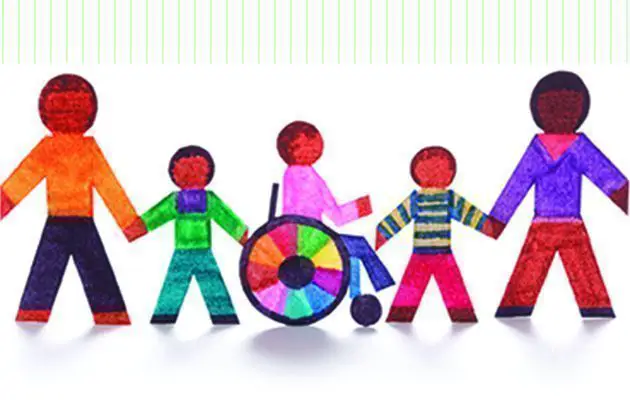Talking about your child’s special needs to peers is the best way to help them understand your child. Here are a few tips from Child Mind Institute about talking to children about psychiatric, developmental, and learning disorders.
It took a lot of courage for Michaela Searfoorce to talk to her son’s fourth-grade class about an incident she feared would lead to hurtful teasing, but she was thrilled by the “help, support, and kindness” in the kids’ responses. Talking to a whole class without the child present may not always be the best strategy to protect a particular child, but it’s good for all the children to be given a chance to learn more about kids with “differences” and have a chance to develop empathy, notes Susan Schwartz, director of the Child Mind Institute’s Learning and Diagnostics Center.
Here are a few tips on talking to children about psychiatric, developmental, and learning disorders that will do everyone good.
Invite questions. Searfoorce did well to let the children ask questions, so she could gauge what information they were ready to hear.
Let them air misconceptions. Listening to them is an important opportunity to correct any misinformation that they may share.
Enlist curiosity. Getting a chance to talk about behavior that seems odd or mysterious to them may defuse awkwardness.
Be comfortable. Let them know in your tone that you aren’t embarrassed by talking about a child’s unusual behavior or limitations, and they don’t need to be either.
Trust them. Let them know that you have confidence in them as people and trust them to be fair.
Don’t sugar-coat things. A simple, straightforward, honest response to a question will prompt more empathy and cooperation.
But don’t overshare. Searfoorce answered a lot of questions but each answer was brief. She didn’t overwhelm the children with more information or emotion than they could absorb.
Consider getting an ally. While Searfoorce seems to have handled this situation admirably, some parents might be more comfortable asking a teacher, counselor, or school psychologist to talk to the class about their child. The professional could also simply discuss generic information so as not to single out a specific student.
Be developmentally appropriate. First-graders can be very tolerant of personal hardships and differences, while eighth-graders have a strong desire to conform. Know your audience.
Educate early. One of the best ways to support your child is to push for increased education concerning developmental, psychiatric, and learning disorders in general. Wouldn’t it have been great if the kids in Searfoorce’s son’s class had already had a series of short introductions to the variety of differences people can have before her son’s accident?
Susan J. Schwartz, M.A.Ed., director of the Child Mind Institute’s Learning and Diagnostics Center, has been on the forefront of interdisciplinary approaches to evaluating and treating those with reading, writing, math, and organizational difficulties, as well as nonverbal learning disorders. She is also a significant public voice on learning accommodations and special education services in our schools. Visit childmind.org for more of her expert advice.





















